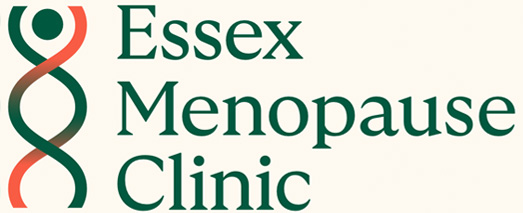World Menopause Month: Progress and Challenges
October is World Menopause Month, a time to reflect on the tremendous progress we’ve made in menopause care over the last 10 years. Thankfully, more women are now choosing to access expert care for their menopause symptoms, and we’re finally seeing menopause symptoms being recognised for their real impact.
However, many women still struggle with symptoms that can profoundly affect their ability to work, it can strain relationships and take a significant toll financially. We still have a long way to go, but I’m heartened by the improvements we’re seeing. My mission has always been to provide expert, compassionate menopause care, and I work with many complex cases where patients come to me after struggling to find the relief they need elsewhere.
Too often, women are prescribed very generic treatment that overlooks the bigger picture. A holistic approach is crucial—one that considers diet, exercise, stress management, mindfulness, and other aspects of a patient’s life. By doing so, I aim to offer more than just symptom relief but also a pathway to improved overall well-being.
Recently, there’s been a lot of buzz in the media about menopause treatments, particularly around Hormone Replacement Therapy (HRT). You may have seen coverage like the recent BBC Panorama programme. While I’m glad to see more awareness being raised, I completely understand if some of the information has left you feeling a bit unsure or concerned.
So, let’s take a moment to clear up any confusion and talk about how we approach menopause care here at Essex Menopause Clinic—especially when it comes to HRT.
My Approach to Menopause Care
As someone who’s completed the FSRH Advanced Certificate in Menopause Care and is recognised as a British Menopause Specialist, I follow the most up-to-date, evidence-based guidelines from the British Menopause Society (BMS). I also stay connected with a network of other menopause specialists to ensure I’m always offering the best possible care.
On top of that, my clinic conducts regular audits to make sure everything we do is of the highest quality. It’s all about giving you the care you deserve, based on the latest science.
How I Prescribe HRT
For the vast majority of my patients, HRT is prescribed within the guidelines set out by the manufacturer. This usually includes:
– Standard doses of oestrogen, tailored to your specific symptoms and needs.
– Progestogen to protect your uterus if necessary, or if you have certain conditions like endometriosis.
Off-License Treatment
In rare and exceptional cases, I might prescribe medications off-license. This means we’re using them in a way that is outside the scope of their regular, licensed use, but it’s always done carefully and for very specific reasons, such as:
- Higher doses of oestrogen (when very occasionally needed)
- Lower progesterone doses
- Different methods of administration
- Testosterone therapy, (always following British Menopause Society guidelines)
These decisions are made only after a thorough chat about the risks and benefits, and with close monitoring. I also ensure that your GP is kept informed, with your consent.
Safe, Evidence-Based Care: Addressing Recent Media Concerns
You might have watched a recent Panorama programme that highlighted concerns with a particular private menopause clinic. It’s important to understand that the British Menopause Society, the leading authority on menopause care, dismissed the practices of this clinic for working too frequently outside of set guidelines. I want to reassure you that my approach is strictly evidence-based and follows the BMS guidelines closely.
For example, while there are cases where oestrogen doses may need to be increased beyond the licensed recommendations, these are the exception, not the norm. Safety is always my top priority.
Ongoing Monitoring and Second Opinions
In some cases, you might have concerns about whether you’re on the right treatment—maybe you’re frustrated with patches falling off, or perhaps the gels or sprays you’re using aren’t giving you the symptom relief you expected. If you’re feeling over-treated, under-treated, or just unsure about your current regimen, I’m happy to offer a second opinion. My goal is always to find the best approach for you.
HRT isn’t just about prescribing medication and sending you on your way—it requires regular monitoring to ensure it’s working for you. That’s why I recommend that all of my patients to have at least six-monthly check-ups. I usually see patients three monthly until the treatment is working well. Sometimes these reviews might include blood tests to check that your hormone levels are where they should be.
If it’s been a while since we last met, I’d love for you to book an appointment to see how we can optimise your care further
I believe in providing a full, personalised service that considers your overall health—not just the medication itself. If you’re unsure about whether you’re on the right treatment, or if you’re experiencing challenges with your current HRT regime, I’m here to help.
Transparency and Trust
I believe that open and honest communication is key to providing great care. That’s why I always explain all your treatment options and encourage you to ask any questions or raise any concerns. It’s your health, and you should feel empowered to make the best choices for you.
If you’ve been prescribed HRT or you’re thinking about it, and you have questions, feel free to reach out. I’m here to listen, explain, and ensure you get the best possible care during this important time in your life.
You can book appointments either by calling our helpful reception team on 01277 201001 or alternatively by booking online.





